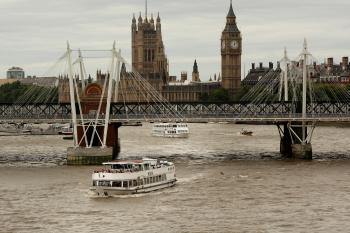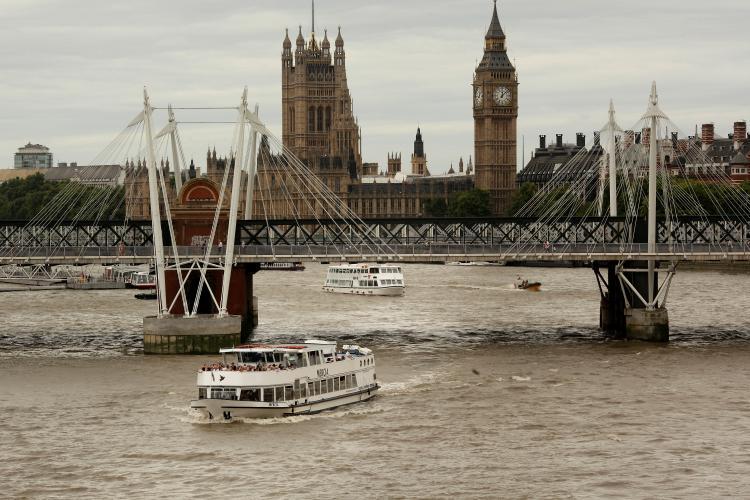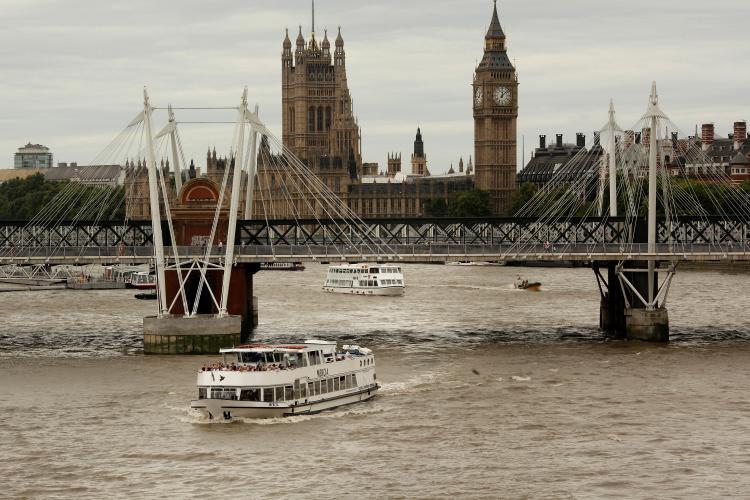U.K. Faces Nuclear Terrorist Threat
A nuclear attack on the heart of London by al-Qaeda terrorists is now a possibility.

Tourist boats navigate the River Thames near Parliament in central London, England. U.K. government reports warn that terrorists could launch a 'dirty bomb'attack on London by speedboat. Peter Macdiarmid/Getty Images
|Updated:





